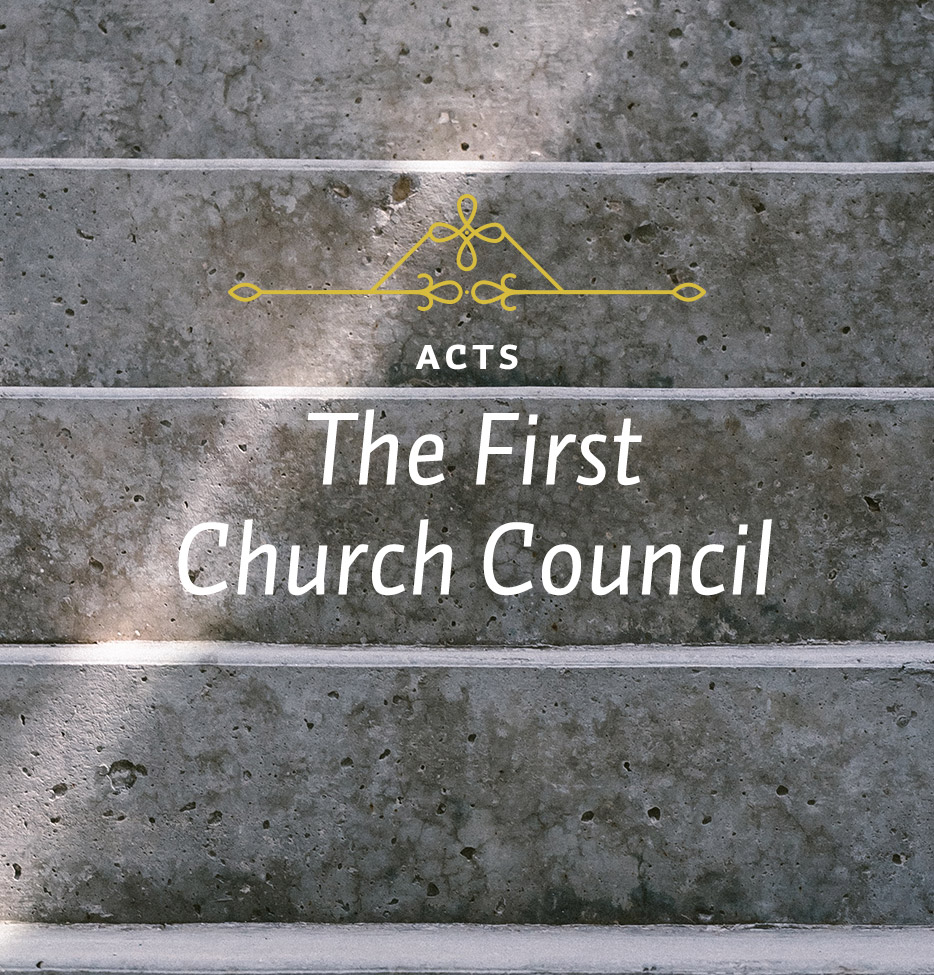Many of the “circumcision party” were no doubt honest and even spiritual men. Paul was not so charitable when he spoke of them in Galatians. He regarded their view as heresy, as indeed it is, and he considered those who were advancing it to be subverters of the church and God’s enemies. He pronounces an anathema upon them. But this does not mean that these people were all consciously trying to do the church harm. If you had asked them, “Do you believe that Jesus died for your sin?” they would have said, “Of course we do. That is why He came.” But then they would have asked us, “Don’t you believe that God has given us the law and that it is essential for everyone to keep it? We believe God gave a special revelation through Moses, and that what God says in the law is true and eternally binding. God has told us that we must be circumcised. If you disobey the commandment of God at that point, how can you say that you are a saved person?”
When you put the argument that way it begins to carry some weight. And you may even find yourself saying, as people undoubtedly did in these early days, “Perhaps the circumcision party is right. Perhaps the Gentiles are not saved. Maybe they need to assume the law’s yoke.” But think what was at stake.
1. If it was necessary for the Gentiles to keep the law of Moses to be saved, then Paul and Barnabas were false teachers. This is because Paul and Barnabas were on the other side. Paul taught that the Gentiles did not have to keep the law of Moses to be saved. They were to be saved by the work of Christ received by faith alone.
Paul was the first to admit that all who profess the name of Christ must, nevertheless, live a righteous life. He said that anybody who says, “Let us sin that grace may abound,” doesn’t understand the faith at all. A person like that deserves to be condemned. He would say, as the theologians of the Reformation did, we are saved by faith alone, but not by a faith that is alone. True faith results in good deeds, including adherence to the moral law of God. Nevertheless, Paul insisted just as strongly that nothing, absolutely nothing, is a prerequisite to faith. So if you say, “You must be circumcised and believe,” or “You must be baptized and believe,” or “You must go to this or that church and believe,” or “You must belong to this or that denomination and believe,” yours is a false gospel.
At this point, the legalizing party was diametrically opposed to Paul’s teaching. If their understanding of the Old Testament was right and circumcision and a legal adherence to the law was a requirement for all Christian people, then Paul and Barnabas were not true apostles and the books that we have in the New Testament from the pen of the Apostle Paul are not divine revelation. If that is the case, it would reduce the bulk of our New Testament by a considerable amount.
2. If it was necessary for the Gentiles to keep the law of Moses to be saved, then faith is not enough.In other words, we must reject the Reformation. We cannot affirm sola fide, justification by “faith alone.” We might still say that faith is important. But it will not be true to say that people are saved by faith alone, since we must also have something else, the Jewish legal system. Only when we submit to that, even though we may also believe on Jesus Christ, will we find salvation.
3. If it was necessary for the Gentiles to keep the law of Moses to be saved, then not only were Paul and Barnabas false teachers, and not only is faith not enough, but Gentiles in the many scattered Gentile churches throughout the whole world, both in the past and today, are not saved. They are not Christians. No? Then what was it that was happening out there in places like Antioch, Iconium, Lystra and Derbe? And later in Macedonia, Athens, Corinth and Rome? In fact, around the world? Obviously a false religion was advancing everywhere.






